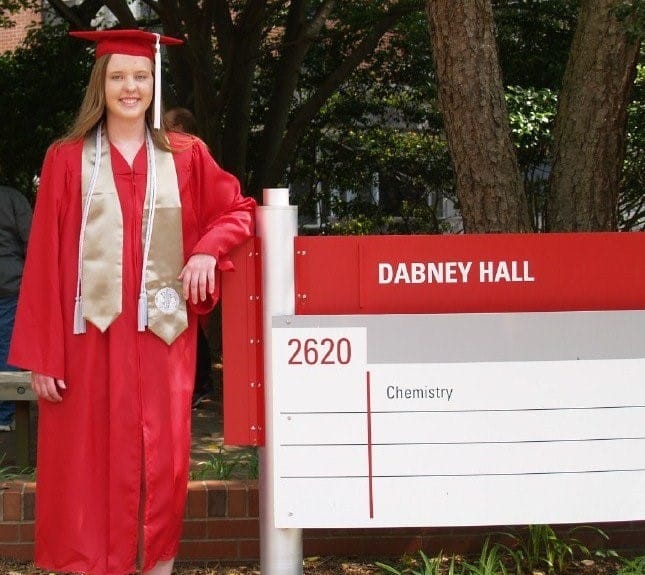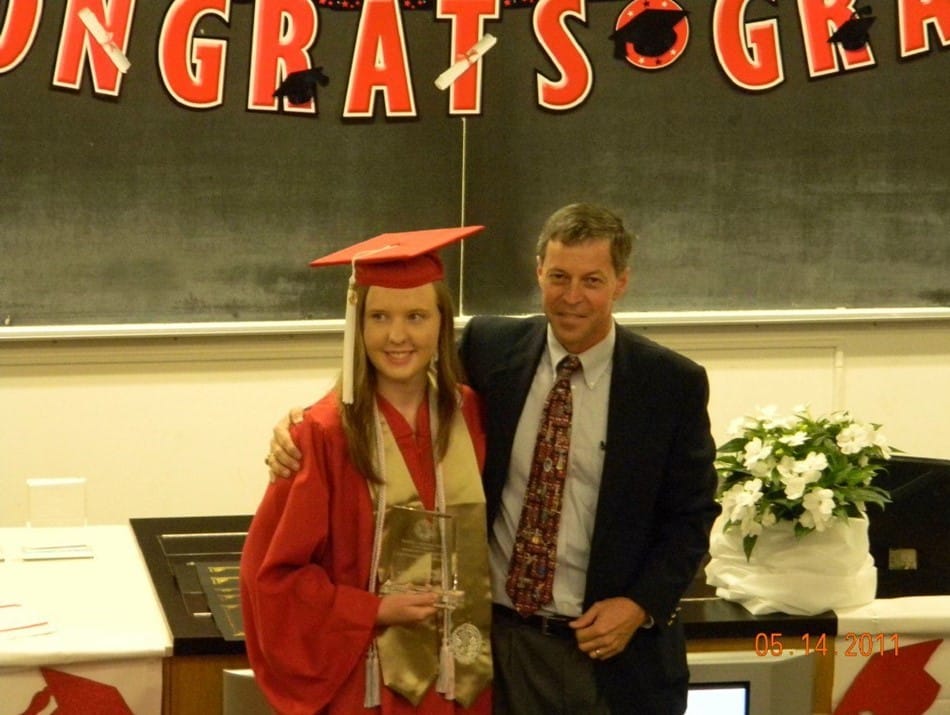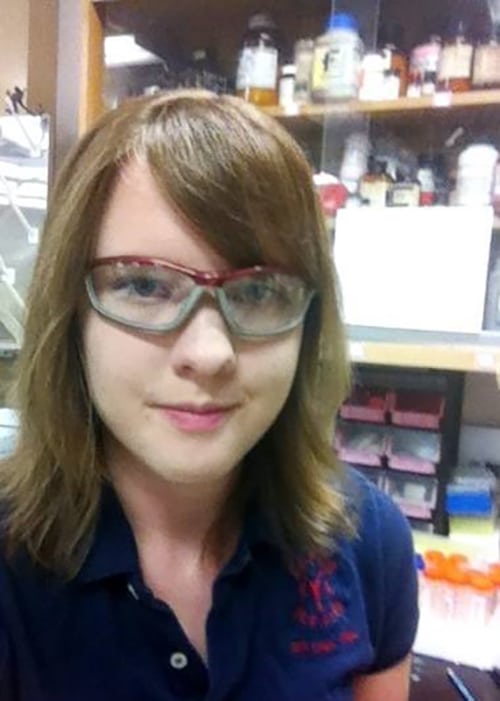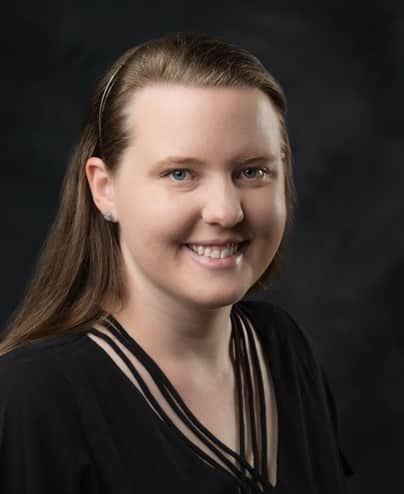Alumna Profile: Amanda Patrick ’11
Prof. Amanda Patrick was interviewed by Nada Taylor, a Public Communication Specialist with the Department of Chemistry at NC State University.

Amanda Patrick ’11 graduated from NC State after majoring in chemistry and minoring in anthropology. When asked why she chose these programs, she explained that she initially wanted to pursue a career in pharmaceuticals or forensic science, and she opted for chemistry because it offered a solid foundation for professional success in those or other related fields.
For her anthropology minor, Amanda’s interest was piqued after taking a general education class. She then continued taking anthropology courses as electives until she had earned the 15 credits required for a minor.
Q: What did you enjoy most about the Chemistry Undergraduate Program?
A: As a high school student transitioning to college, I was initially apprehensive about the size of NC State’s campus. Coming from a small town, it seemed a bit overwhelming. However, upon entering the Department of Chemistry, I found it to be a tight-knit, supportive community.
In my first year, I took Prof. Maria Oliver-Hoyo’s SCALE-UP class, where we worked in small groups, getting a chance to meet the other students at our table. There was an immediate sense of camaraderie there. In my sophomore year, I became involved in undergraduate research. Belonging to a research group further strengthened my sense of belonging. I also participated in the student affiliates of the American Chemical Society club.
Even after 15 years, I still keep in touch with some chemistry professors and students from undergrad. Overall, NC State’s chemistry department does an excellent job of fostering a sense of community among its students, despite being a part of a large campus.
Q: Who did you meet while you were at NC State with whom you are still in touch?
A: Having continued down the academic career path, I am still in touch with several NC State faculty. I still communicate with Prof. Oliver-Hoyo. I’ve also been in touch with Profs. Ana and Elon Ison, who are both alumni of the University of Florida, where I also attended graduate school. Additionally, I’ve interacted with Prof. Maria Gallardo-Williams and Prof. Ghada Rabah on Twitter, which has helped me stay updated with the latest happenings at NC State.
As for students and classmates, there are several classmates from my chemistry and STEM classes that I still keep in touch with, some more often than others.

Q: Tell me a funny story about your time at NC State.
A: I have a somewhat embarrassing story to share. During my undergrad research, I discovered I was not well-suited for synthetic chemistry. I ended up exploding or imploding more than one flask, together worth hundreds of dollars. After a few mishaps, we realized I’m much better suited for instrumentation as an analytical chemist. I started running many NMR and GC experiments and have continued down that path since. The lesson to be learned: sometimes, it’s just as important to learn what you’re not good at as it is to learn what you are good at.

Q: Who were the most influential people throughout your journey at NC State?
A: I have already mentioned several of them. Profs. Ison gave me my first chance in the lab and inspired me to pursue my Ph.D. Prof. Oliver-Hoyo kept in touch, ensuring that I made connections to get into undergraduate research and eventually into graduate school. Dr. Jaap Folmer taught my Measurements 1 class, where I gained a lot of hands-on experience with various instruments and learned how to think through problems in instrumental analysis. I remember him saying, “If you’re not breaking things, you’re not learning.” Overcoming the fear of working with instruments worth hundreds of thousands of dollars was a significant hurdle, and Dr. Folmer gave us the freedom to recognize that it’s okay to “break” things as long as we also learn how to fix them.
Q: Tell me more about your current job and where you work.
A: I am now an assistant professor in the Department of Chemistry at Mississippi State University. I have been working here for five and a half years now. As an analytical chemistry professor, I run a research group that studies ionic liquids and small biomolecules using mass spectrometry. I also teach general chemistry, instrumental analysis, and graduate-level mass spectrometry courses.
My experience at NC State prepared me well for graduate studies and my career. My undergraduate research and outreach activities helped me get an NSF GRFP fellowship to support my graduate studies. This fellowship opened up many more doors for me in graduate school and beyond. NC State provided me with a solid foundation for understanding the complete package (research/academics, teaching, and outreach/service) that is rewarded after undergrad. Additionally, there were several direct things, like approaches to curriculum and lab integration, that I can use to improve my current curriculum.
When asked for a piece of advice to share with our current and future students, Prof. Patrick said: “It’s important to get comfortable with the idea of struggling a little bit while learning new things. This is when you learn the most. If you understand everything right away, you’re probably not learning anything new or challenging. It’s a natural part of the learning process and not a failure or shortcoming. This is especially important in fields like science research, where you’re doing something truly new.”
